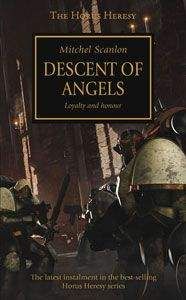Jonathan Howard - Johannes Cabal: The Fear Institute
The view from up there of the land ahead was less salubrious than that of the land behind. Off in the distance the rolling landscape grew less marked, and the colour drained from it by degrees until the verdant hills gave way to the pale brown sand dunes of the Cuppar-Nombo Desert. Nor was this shade of brown the usual golden brown of Earth’s more scenic deserts, but rather the bland light brown of cold café au lait, a tired, sad colour, too depressing even for hospital walls. All three men looked at it, and all three drew long breaths that they allowed to sigh out of them as if they were deflating. Why the founders of Golthoth had decided to build their city in such a vile environment when the beautiful Karthian Hills were so close was a mystery for the ages. Perhaps the land had been different then; perhaps the Karthian Hills had belonged to some enemy; perhaps the Golthothians really, really liked nondescript brown sand.
Whatever the case, there was a strong sense that their pleasant interlude was drawing to a close, so they settled down to have possibly their last meal without sand in it for a while. They opened their jars and unwrapped their linen parcels, made a picnic of sorts upon the grassy swathe, and chatted about this and that as they ignored the brown expanse and ate their bread, cheese and salted meat.
They had just been discussing the careers that would abruptly wither away once fear was removed (fortune-telling, several branches of insurance sales, and a large part of the Stock Exchange, the latter principally comprised of fiscal pirates on a monetary sea kept profitably choppy by groundless panic and thick-pated optimism; Cabal asked if there was an equivalent form of the Phobic Animus that encouraged such wide-eyed hopefulness, and if so, would they be hunting this cosmic Pollyanna next?), when Corde noticed that the slice of meat he had just that moment arranged upon a cob of bread was no longer there.
After some undignified glaring in all directions, his eye settled upon a young cat, barely more than a kitten, that was padding away as swiftly as it might with a large slice of stolen meat in its mouth. It withdrew to what it believed was a safe distance some twenty feet away, and started tearing morsels from its booty, all the while keeping a watchful eye upon the three men in case they couldn’t resist the desire to recover their food, grass-stained and cat-drool-coated as it was.
‘Well I never!’ said Corde, in righteous anger, but Cabal just made a soft bark of amusement in his throat, and Bose laughed out loud. Corde was suddenly aware that the only beings in that world or any of its immediate neighbours that gave a fig for the fate of his sandwich filling were himself and the cat that had stolen it. He smiled and laughed, a little forcedly, for inside he seethed with resentment at the animal.
‘What sort of cat is that?’ asked Bose, gesturing at it with a meat sandwich that Corde couldn’t help but notice was unsullied by cats. ‘What do they call those? It’s a brindle, isn’t it?’
‘Brindle,’ said Cabal, slowly, as if Bose had said something thoughtlessly hurtful, ‘is a patterning. A brindled cat is a tortoiseshell.’ He sat, watching the cat through narrowed eyes, a faint sense of disquiet growing within him. How far from Ulthar are we? he wondered.
‘Well, whatever type of cat it is,’ said Corde, with faux-joviality, ‘it’s a little rascal.’ So saying, he took up a small stone and shied it in the general direction of the cat. When Cabal saw what he was about, he started to call a warning but it was already too late.
The stone was little more than a largish piece of gravel, and it was thrown without any great force. It should have described a leisurely parabola and bounced upon the grass near the cat, probably startling it. The stone did few of these things. With the horrible inevitability of nightmare it left Corde’s hand like a bullet from a slingshot, spinning rapidly as it went, arced sideways, and hit the cat hard in the head. Even from where they sat, the harsh crack of bone was sickeningly distinct. The cat fell to one side, shaking violently in spasm. Corde leaped to his feet and ran to it, but it was already still and dead by the time he got there.
A man dressed as a great fighting general, he stood over the pathetic little form, put his hand to his mouth and gazed in horror at the blood, the exposed brain and the split eyeball. The cat looked more as if it had been shot than hit by a casually tossed stone.
‘Is it dead?’ he heard Cabal say, in clear, neutral tones behind him.
‘I didn’t mean to . . . How is that possible?’ Corde simply couldn’t take in how bizarre the sequence of events was. ‘I barely even . . . It makes no sense.’
Cabal was not interested. ‘Gather up your things immediately,’ he instructed. ‘We must be on our way before they find out.’
‘What?’ Corde looked uncomprehendingly at Cabal. ‘What are you talking about, man? Before who finds out?’
‘The cats, naturally.’ Cabal was already striding past him, heading westwards in the direction of the desert.
‘Cats, Mr Cabal?’ Bose was having difficulty in raising his voice to be heard through a mouthful of sandwich. ‘The cat’s owners, you mean?’
‘I mean what I say, and I am in deadly earnest. There are plenty of things to be rationally afraid of in the Dreamlands, and not all of them are as overt in their threat as wamps.’
Based on Cabal’s usual sang-froid, if he decided that killing a cat, even accidentally, was cause for a rapid decampment, that was sufficient motivation for Corde and Bose, who decided to hold their questions for later, quickly gathered up their belongings and headed westwards too.
When they caught up with Cabal his first words were, ‘In the shade of the ivy on the wall to the left is a cat. We are discovered already. Our only hope is to reach the desert and hope that their notorious laziness and dislike of discomfort prevents them following.’
Corde risked a sideways glance and saw that there was indeed the tumbledown remains of an old farm wall, upon which grew a generous dangling of ivy. Beneath it, he saw the glint of green eyes, and felt a strangely alien antipathy projected at him that did not make him think of tangled knitting and hairballs. He shuddered, and quickened his pace.
‘What is this?’ he asked Cabal. ‘They’re just cats. How is it that they’re dangerous?’
‘Because they are not just cats,’ said Cabal, now starting to break sweat as he, too, lengthened his step. ‘These are the Dreamlands, and what is here is the stuff of dream. Cats, as any rational person knows, are solitary, opportunistic, ambush predators, much like spiders, but with fewer legs and a better fan club. They are, by and large, stupid animals, the cleverest of the species being about on par with an average dog. I am no great admirer of dogs, either, I should add. My observations, while admittedly casual, are at least, therefore, objective. Cats, however, appeal to the anthropomorphising aspects of the human psyche like no other. They are credited with intelligence, cunning and an indefinable sophistication that, when regarded in light of their actual behavioural mores, will be observed to be pure phantasms. It is a deep belief, however, and that is where our danger lies, for the ridiculously inflated beliefs of generations of delusional cat devotees – and I use the term advisedly – are made concrete in the Dreamlands. Here they truly are intelligent, cunning, sophisticated and capable of the most exquisite malevolence, just as the dreamers who unwittingly weave them would want them to be. You have killed one of their number and, among far too many people, that is a capital offence. And so it is here.’
Soon the cats did not trouble to hide themselves, but sat erect like statuettes by the way, only their eyes moving as the three men hurried past. Then they rose and trotted along in a growing pack behind them, their tails low and twitching with anger.
There was no time to catch their breath and take stock. The horde of idealised kittery in their wake grew in numbers and in threat at every moment. It had long since ceased to be just a bunch of cats – now it was a furred stream that swept after them, an avalanche of claws awaiting the signal.
It was Corde who gave it to them. His evident panic increased with every step, every new recruit to the pursuing army, and his desperation grew with it. He was offered no comfort by his companions. Cabal was silent and focused purely on reaching the desert where the cats might desist. If he knew anything, it was that he loathed the thought of his last moments consisting of being swamped by an overindulged bunch of goldfish-botherers like their persecutors. Bose said nothing, but hurried along in a state of confusion, blinking furiously.
Then panic froze into hopelessness and a desire for some sort of resolution right at that very minute, and Corde stopped, spun on his heel, drew his sword, and bellowed, ‘Come on, then, you damn’d fleabags!’
He was probably expecting a moment of indecision on the part of the cats, a beat before they were faced down, or flew at him, all claws and spitting, but they did neither. They did not stop when he turned, but continued to flow across the ground, and he had barely time to cry his challenge when they were flowing over him too. He was surprised, and did not call out or scream, as he became coated in cat. He struggled, but soon enough he could not see or hear anything. His hands flailed and his sword fell.
Bose said, ‘Oh!’ and went to help him, but Cabal caught his arm and said, ‘If you hurt even a hair on one of their smug little heads, they will kill you too.’
‘But Mr Corde isn’t dead!’ he cried. Cabal just held his arm tightly and watched as Corde fell, and the boiling, purring pool of fur where he had stood smoothed out, and became distinguishable individuals again, then poured off in all directions as if they had appointments elsewhere.
When they had gone, Cabal finally let go of Bose’s arm. ‘Now he is,’ said Cabal.
There was little left, just an abandoned sword, a few scraps of torn cuir-bouilli and some tumbled pieces of equipment. Cabal watched a kitten a few yards away dragging off a finger bone, the joint gripped fiercely in its adorable little blood-smeared mouth.
‘And then there were two, Herr Bose.’
Chapter 13
IN WHICH THE DOMESTIC WONTS OF SORCERERS ARE INVESTIGATED AND CABAL CANNOT BE CONCERNED
Much as a rubber ball deforms on impact only to spring back into its usual shape, so Bose’s crumpled spirits soon rose above such small distractions as having two friends die in relatively rapid succession and in the most horrible ways. After all, life goes on, which in the case of Gardner Bose meant strolling along, whistling a jaunty tune and generally exhibiting a guileless, indeed witless, mien. On a village street, it would be acceptable. In the dun dunes of the alkali Cuppar-Nombo Desert, it was a little wearing.
At least it was not especially hot. The lack of water in the desert was more an accident of geography than extreme temperatures and, while it was a long way from cool, it was not unbearable. Of the environmental hardships, Bose’s whistling was by far the worst. It came slightly muted – although not nearly enough – by the handkerchief he had tied over his mouth and nose in imitation of Johannes Cabal, a measure to avoid breathing in more sand than was necessary. Cabal’s second innovation of wearing his baffled blue-lensed sunglasses Bose could not emulate, so he was reduced to squinting fiercely against the fine dusty clouds that blew up into dust devils given the excuse of any faint breeze.
At least Cabal would not have to endure Bose’s whistling for long, as this leg of their journey would be a short one: according to Cabal’s maps and notes, the abandoned city lay a day’s walk into the sands and was easily visible at range, so an error in navigation was unlikely. When the distant towers of ancient Golthoth appeared, only slightly off their set course, they were only as tired as a day’s walking on sand would warrant and – since the sun didn’t seem greatly interested in the Cuppar-Nombo – barely dehydrated at all.
Golthoth was a very different city from the one they had left by the Lake of Yath. Where that had been strangely vibrant, as if all the citizenry were just hiding out of sight and waiting to leap out in an impracticably large game of peek-a-boo, Golthoth seemed to have been built as a mysterious abandoned city right from the first stroke of an architect’s stylus. As Bose commented when they first walked into its broad precincts, the place seemed very redolent of ancient Egypt, calling to mind the Memphis of the early dynastic period. Was it perhaps possible, he wondered, that the dreams of the first pharaohs had influenced this place? Cabal was quite certain it was the other way around.
The city contained a great deal of formal statuary, made from a dense stone of less scatological shades of brown than the desert. Gods and rulers they may once have been, but a thousand generations of sandstorms had eroded their faces into little more than arrays of suggestive bumps and contours that seemed to indicate that few had begun with human physiognomies. Cabal also noted that the doorways were uniformly a good twenty inches taller than normal Earthly doors, and that the more important buildings often seemed to sport additional doors of a curious squat hexagonal design, some larger examples lacking the upper edge to become pentagonal instead. Cabal kept his counsel, but suspected that these buildings had witnessed visitors for whom the strange doors were ideally suited.
The architectural style, however, was not homogenous. Here and there later additions stood awkwardly surrounded by the eldritch opulence of the original buildings. Some seemed to have been built in an attempt to claim the city for some interloping power, a strategy that had only ever been met by failure, judging from the current state of affairs. Other – rarer – forms were more enigmatic. These were uniquely towers, dotted randomly about the place as if they had been dropped from space, or had grown up through the pavements and squares. There were not many; Cabal counted five easily visible, with two or three more tumbled and broken, the brown sand grown yards deep in drifts against the shattered stone.
‘Wizards,’ he said disparagingly. ‘The pretentious bastards just have to set up shop in towers situated in awkward places. It is a fault endemic among them.’
‘And this wizard Ercusides mentioned . . .’
‘Hep-Seth.’
‘Yes, Hep-Seth. One of these will be his, then, Mr Cabal?’ Bose allowed something like worry to travel across his beamish face. ‘I say, though, it’s all a bit . . . dead here, isn’t it? Do you think he’s still about?’
Cabal considered opening his bag to double check with Ercusides, but decided against it. The hermit-cum-paperweight had become recalcitrant since Dylath-Leen, and every time Cabal tried to speak to him, their conversations became shorter and more cryptic to the point at which he simply did not care to try any more. ‘He should be,’ he said, but did not sound very reassuring even to himself. The city felt dead to him, and he was better equipped than most to sense such a state. He just hoped that it would not be necessary to revivify any more skulls, although the thought of Ercusides and Hep-Seth being stuck in the same Gladstone and resenting it deeply cheered him up a little. ‘It must be one of these towers. We shall work through them until we find the right one.’




